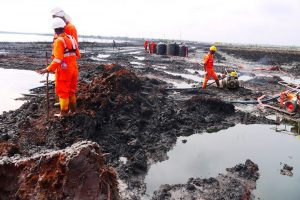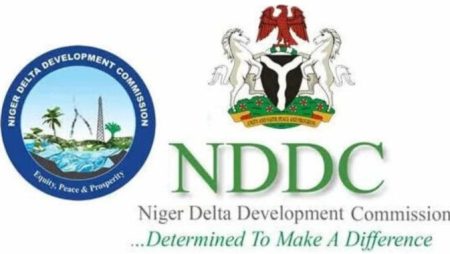Mkpoikana Udoma
Port Harcourt — The people of Ogoni have vowed that crude oil assets in Ogoniland will not be allocated to any investor without their free, prior and informed consent as guaranteed under international human rights law, particularly the United Nations Declaration on the Rights of Indigenous Peoples, UNDRIP.

The people made the vow recently, while marking the 27th anniversary of Ogoni Martyrs Day, with the theme, Ogoni Heroes, Defining Ogoni Futures, noted that in recent time there has been intense pressure for oil exploration resumption in Ogoniland.
The Ogoni Development and Democracy Forum said that Ogoni oil will remain untapped, until a broad-based discussion with the Ogoni communities takes place, especially since the oil industry and Ogoni had been in dispute and the issues surrounding those disputes have not been resolved. The very issue which Ken Sari Wiwa and other Ogonis fought and died for.
Executive Director of the group, Legborsi Pyagbara said the day was dedicated to the death of Ken Saro-Wiwa, Chief Edward Kobani, Albert Badey, John Kpuinen, Barinem Kiobel, Chief S.N. Orage, Nordu Eawo, Chief T.B.Orage, Saturday Doobee, Daniel Gbokoo, Paul Levura, Baribor Bera, Garrick Leton, Felix Nuate and others who were killed in the struggle to actualise the dreams of the Ogoni people as contained in the Ogoni Bill of Rights.
According to Pyagbara, the process of national healing and reconciliation will not be complete until the Nigerian government clears the name of the Ogoni nine.
“The heroes that we are mourning today died fighting against extractivism. Ogoni oil assets cannot be partitioned and allocated like the partitioning of Africa, to any investor without the free, prior and informed consent of the Ogoni People as guaranteed under international human rights law particularly the United Nations Declaration on the Rights of Indigenous Peoples.
“On this matter, our point remains that ‘Let The Oil Remain in The Soil’ until an engagement process which respects the free, prior and informed consent of the Ogoni people is sought and received. The very conflict of extractivism which consumed the heroes for which we are gathered here today to remember.
“The fires that lit the Ogoni skyline for over four decades is responsible for the global crisis of climate change that has forced the world to be meeting yearly to find solutions to the simmering climate crisis. Today, several communities are flooded due to sea-level rise and heavy rainfall. It is time we re-examine extractivism and its impact on our community.
“The ultimate purpose of today’s occasion is to remember the lives and times of the Ogoni martyrs. In the same breath, we wish to use this opportunity to remind the Nigerian government to right the wrongs committed against these our fallen heroes.
“The executions of the Ogoni nine triggered a firestorm of condemnations across the globe. The Commonwealth of Nations suspended Nigeria from its membership in the wake of the killings. The United Nations General Assembly adopted a resolution on Nigeria on December 22, 1995, in which it condemned the executions of Ken Saro-Wiwa and other members of the Ogoni Nine and called on the Secretary-General to send a fact-finding team to Nigeria.
“On this Ogoni Martyrs Day, we still reiterate our appeal that in the spirit of promoting national healing and reconciliation, the government of Nigeria should exonerate the martyrs and honour them.”
The people of Ogoni also stated that the notion of self-determination cannot be swept under the carpet, hence the country must restructure, or the people will perish.
“The Ogoni Nine died for a restructured Nigeria which will guarantee equity, justice and fairness by creating political space for the sub-national entities to develop at their own space while ensuring protection for national minorities and Indigenous communities.
“The Ogoni Bill of Rights, which is the basis of the Ogoni struggle, emphasizes local autonomy and self-determination for the Ogoni people and other Nigerian communities that are threatened by internal colonialism. It is only restructuring that can guarantee this.
“It is therefore facile for some people to claim that the basis of Nigeria’s existence is not negotiable. The whole process of nation-state building is a process of negotiation until we have arrived at the ultimate point of an authentic Nigerian-nation state. It is time that the government commence the process of restructuring and guaranteeing subnational entities like the Ogoni people, the self-determination necessary for their development.”
Follow us on twitter



